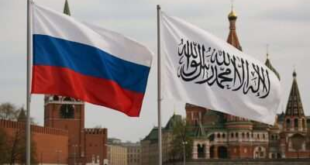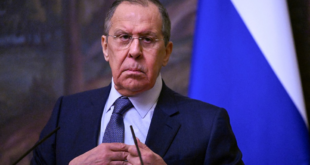GHAZNI, Afghanistan (Reuters) – Taliban insurgents said on Sunday there was still no agreement on where to hold direct talks with South Korean diplomats seeking the release of 21 of their countrymen kidnapped more than two weeks ago.
A South Korean delegation was in Ghazni province, southwest of Kabul, where the church volunteers were snatched on July 20, seeking face-to-face talks with the kidnappers.
The Taliban want negotiations either in areas they control or with United Nations guarantees for their safety if held elsewhere.
“Talks and contacts are still going on to decide on a venue for talks, but there has been no agreement,” Taliban spokesman Qari Mohammad Yousuf said by telephone from an unknown location.
“The Taliban haven’t heard from the Korean side on where they want the face-to-face meeting to be held,” he said.
South Korea requested the talks as a way of trying to break the deadlock over the hostages.
The Taliban have already killed two of their captives and are threatening to kill the rest if the Afghan government fails to release rebel prisoners. Kabul has refused to free jailed Taliban, saying that would only encourage more kidnappings.
Seoul has told the insurgents there is a limit to what it can do since it has no power to free rebel prisoners in Afghan jails.
“The Korean team has told the Taliban that it will persuade
Kabul to release Taliban prisoners,” Yousuf said.
The governor of Ghazni accused Pakistani Taliban working with agents of Pakistan’s state Inter Service Intelligence (ISI) of holding the captives.
PAKISTANI ROLE?
“In the beginning it was the local Taliban, but after a few days, Pakistani Taliban and ISI officers disguised as Taliban arrived in the region and they took control,” Merajuddin Pattan told Reuters on Saturday.
The ISI backed the Taliban movement as it rose to take over most of Afghanistan in the mid-1990s, but dropped its support in the wake of the September 11, 2001 attacks on the United States.
Afghan officials often accuse the ISI of secretly supporting and harboring Taliban insurgents. Pakistan denies the charge.
The Taliban spokesman rejected Pattan’s accusation.
He said Pattan made the comments because the Afghan government “wants to deflect attention from its own weakness.”
The hostage issue is likely to cast a shadow over two days of talks on security between Afghan President Hamid Karzai and U.S. President George W. Bush due to begin at the U.S. presidential retreat, Camp David, later on Sunday.
Accusations of Pakistani involvement in the kidnapping may also hamper a major peace conference, or jirga, of tribal elders from Afghanistan and Pakistan next week which is meant to agree on how to stop Taliban and al Qaeda border infiltration.
The Taliban spokesman repeated that two of the 18 Korean women hostages were seriously ill, but denied that any medicine had reached them as the Ghazni police chief said on Saturday.
Yousuf said that even if medicine were sent, the Taliban would not give it to the hostages for fear it might kill them and the Afghan government would then blame the kidnappers.
A day before the Koreans were seized, Taliban rebels in Wardak province, just north of Ghazni, kidnapped two German engineers and five Afghans.
One of the Germans suffered a heart attack and was then shot dead and one of the Afghans managed to escape. The rest are still being held by the Taliban who are demanding Berlin withdraw its 3,000 troops from Afghanistan. Germany bluntly refused to do so.
Yousuf said he was surprised that no one was actively seeking the German’s release and said the man was suffering from diabetes and was unable to receive the right medication.
 Eurasia Press & News
Eurasia Press & News



